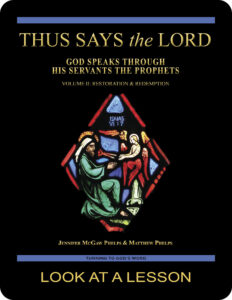purity
 In the Gospel According to Mark 7:1–13 (NABRE), some Pharisees and scribes criticize Jesus because his followers eat meals with unclean hands. This concept of uncleanliness goes back to Jewish purity laws, which were a hot-button issue in Jesus’ day. Especially controversial is what seems to be Jesus’ disregard for Jewish religious law. Let’s look more closely at what’s going on.
In the Gospel According to Mark 7:1–13 (NABRE), some Pharisees and scribes criticize Jesus because his followers eat meals with unclean hands. This concept of uncleanliness goes back to Jewish purity laws, which were a hot-button issue in Jesus’ day. Especially controversial is what seems to be Jesus’ disregard for Jewish religious law. Let’s look more closely at what’s going on.
The Greek word sometimes translated as common in the passage from the Gospel According to Mark is κοινός (koinos), which means “common.” This word in Greek does not have a negative connotation and in fact generally is seen as positive. Koinos reflects the general Greek disposition toward democracy and openness toward other cultures. It’s only in the New Testament that this word takes on a negative connotation and things that are common become understood to be unclean.
This linguistic peculiarity highlights the real point of disagreement between Jesus and the Pharisees. Jesus wanted to be inclusive, and he didn’t look down on non-Jews. In contrast, many of his kinsfolk, following the period of the Maccabean revolt, had become so agoraphobic that they dreaded anything they might have in common with non-Jews. As a Christian today, how do you view those who don’t share your beliefs?
related topics: pure; purification; religious law
you also may like our two-part study of the prophets

 Thus Says the LORD: God Speaks Through His Servants the Prophets—Volume I: A Kingdom Divided examines the prophets in their historical context using the First and Second Books of the Kings and other Old Testament passages written before the Babylonian Exile in 586 B.C. Volume II: Restoration & Redemption looks at the post-exilic prophets. This 51-lesson Catholic Bible study builds on The United Kingdom of Israel: Saul, David & Solomon Foreshadow Christ the King. Click on the books’ covers to view a sample lesson from each volume.
Thus Says the LORD: God Speaks Through His Servants the Prophets—Volume I: A Kingdom Divided examines the prophets in their historical context using the First and Second Books of the Kings and other Old Testament passages written before the Babylonian Exile in 586 B.C. Volume II: Restoration & Redemption looks at the post-exilic prophets. This 51-lesson Catholic Bible study builds on The United Kingdom of Israel: Saul, David & Solomon Foreshadow Christ the King. Click on the books’ covers to view a sample lesson from each volume.
 Click on the picture of the statue of Moses with horns (above) to learn more about Lost in Translation. A new entry is archived each Monday. Contact us to receive Lost in Translation by email every week. You may use any of the contact links on our website to ask Matthew a question.
Click on the picture of the statue of Moses with horns (above) to learn more about Lost in Translation. A new entry is archived each Monday. Contact us to receive Lost in Translation by email every week. You may use any of the contact links on our website to ask Matthew a question.
